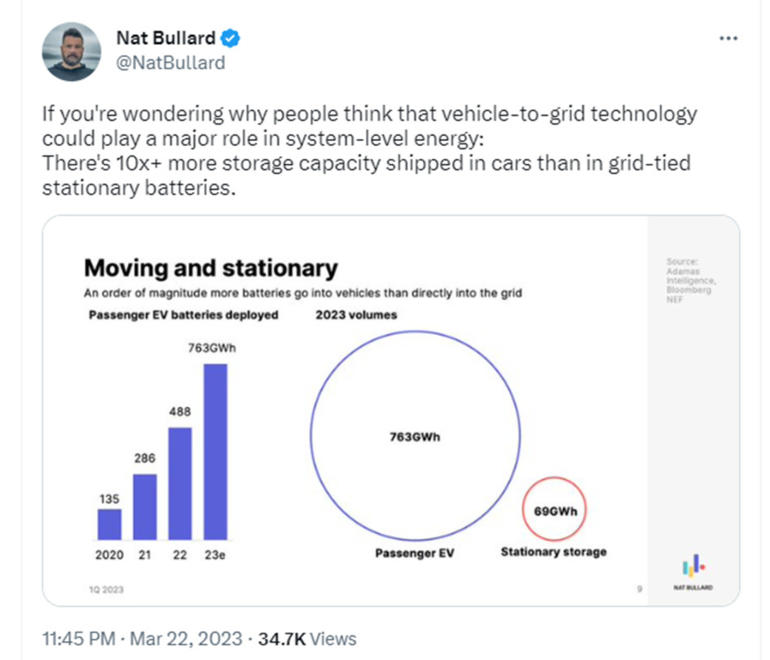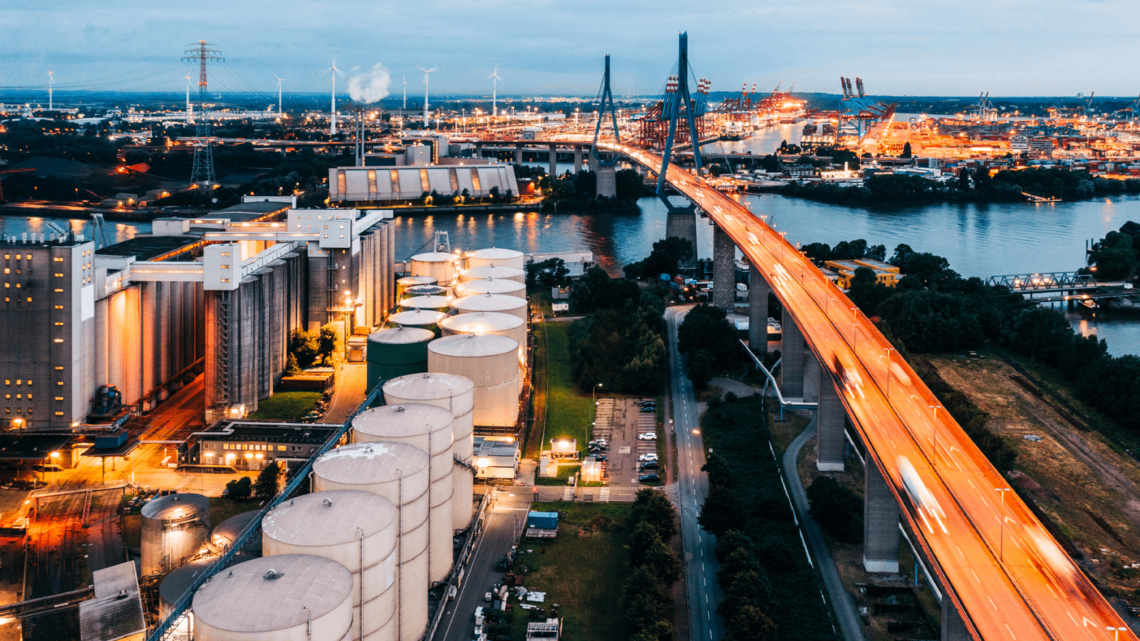Authors
Thomas Deloison, Director, Transport & Mobility at WBCSD, Mariia Skupova, Sustainability Strategy at Accenture, Molly Blatchly-Lewis, Europe Lead – Cities, Transport & Infrastructure at Accenture
- As an addition to the 2019 EU Green Deal, the Green Deal Industrial Plan was introduced in 2023. The goal is to scale up manufacturing of clean technologies in the EU and make sure the Union is well-equipped for the clean-energy transition.
- The new Green Deal Industrial plan is a key milestone in preparing European industry for a successful net-zero transition. The plan highlights the importance of collaboration in scaling up the existing supply chain and further promotes the integrated and flexible energy system to enable faster and more efficient transition. In addition, it underlines the importance of decarbonization to competitive business.
- The plan sets ambitious targets, but delivering them has major challenges. WBCSD’s Switch project aims to scale up the operational decarbonization by removing key bottlenecks on the way to the faster and more efficient transition to a low-carbon future while providing access to knowledge, networks and practical tools. It can support the implementation of the Green Deal Industrial Plan by mobilizing the private sector and acting as an incubator for impactful public-private partnerships.
The EU’s Green Deal Industrial Plan unveiled in February 2023 as an addition to the EU Green Deal, aims to support European industry in enabling a net-zero transition and accelerate decarbonization by scaling up clean-tech manufacturing.
With the landscape of net-zero policy set to change in the EU drastically, a holistic approach to electrification and decarbonization is essential in bringing these policies to life.
“We have a once-in-a-generation opportunity to show the way with speed, ambition and a sense of purpose to secure the EU’s industrial lead in the fast-growing net-zero technology sector. Europe is determined to lead the clean tech revolution. For our companies and people, it means turning skills into quality jobs and innovation into mass production, thanks to a simpler and faster framework. Better access to finance will allow our key clean tech industries to scale up quickly.” – Ursula von der Leyen, President of the European Commission (European Commission)
Buildings, transport and energy are the key pillars of physical infrastructure and act as the backbone of our daily operations. If we approach the decarbonization of these three pillars together – via an integrated approach – the impact will be greater than when we work in siloes. It can help end users reduce capital intensity, find ways to materially improve energy efficiency, tangibly accelerate transitions, and embed resilience.
Switch, powered by WBCSD, guides organizations to harness the benefits of an integrated approach to achieve low-carbon operations. The Switch project is a cross-sector platform that provides practical tools and access to a global network to support operational decarbonization that spans buildings, transport and clean energy.
EU Green Deal Industrial Plan: enabling faster decarbonization
As a part of the European Green Deal, the European Commission has set ambitious targets in the areas of electrification and energy transitions. Now the key challenge is timely delivery. The EU Green Deal Industrial Plan seeks to address this by scaling up innovative technological solutions that can support the green transition of the existing supply chain through collaboration and further integration of energy value chains.
The Plan highlights that during the rapid ramp-up required to meet the hardware and software demands of the low-carbon economy, it is essential not to lose sight of the future system goals, resilience and transparency.
Data sharing is a lynchpin in delivering these goals and making the ambitious goals of the EU Green Deal and Green Deal Industrial Plan a reality. Access to quality data aids both energy users and suppliers by developing holistic business cases, creating suitable financing instruments and understanding value over longer time horizons. This will enable more agile responses to future shifting demand and provide critical input for robust value chains.
‘Collaboration’ is often mentioned as a key driver behind the low-carbon transition, and with good reason – such a complex transition cannot be driven by a single industry or sector. The Green Deal Industrial Plan underscores that decarbonization is also integral to competitive business.
Recent research from Integrate to Zero and Frontier Economics examined the impact of integrated approaches, solutions spanning buildings, transport and clean energy in the food sector across Mexico, Kenya, Spain, the UK and Australia. They found that implementing renewable Distributed Energy Systems (DES), integrating local energy generation and built environment and transportation use, presents economic opportunities across all countries analyzed, saving customers money and enabling businesses to reinvest in themselves. Energy security has become a significant concern in the current geopolitical situation due to cost volatility and availability. As we move toward increasingly electrified industries and lifestyles, the flexibility of the energy system alongside reliable supply will become ever more important. The EU Green Deal explicitly mentions energy integration as a major working area and the Green Deal Industrial Plan aims to further promote the integrated, flexible energy system. In this context, energy system integration means connecting various energy carriers and end-use sectors, such as buildings, transport or industry. This will allow the optimization of the energy system as a whole, rather than attempting to make decarbonization and efficiency gains in each sector independently.
Example: Transport electrification
Take the example of transport electrification; manufacturers and operators are increasingly pivoting to electric vehicles (EV) and the energy sector is racing to supply the charging infrastructure. However, EV batteries have yet to be leveraged to the greatest advantage, as they can effectively function as valuable mobile storage devices. Integrated approaches between transport, energy and the built environment can open up a wealth of possibilities. Generating renewable energy where it can be used, storing it when it is cheap, and adding flexibility and resilience at a system scale through vehicle-to-building and vehicle-to-grid technology offer environmental and financial benefits across industries.

Integrated systems are vital to achieving cost-effective decarbonization across industries. According to the EU Green Plan, the targets set by the EU Commission in these related areas are particularly ambitious: 90% reduction in transport-related emissions by 2050; double annual energy system upgrade rates in 10 years; and 45% of energy demand covered by renewables by 2030. The pace of transformation required to achieve these bold imperatives makes this already complex topic even more challenging to implement.
Switch: bringing expertise and implementation power of the private sector
A holistic approach to decarbonization is key to avoid the EU Green Deal becoming a conglomeration of temporary fixes. Subsidies are an important first step when it comes to incentivizing a change in the market, though, a continuing business opportunity must be demonstrated beyond the life of the subsidies.
For example, the EU strategy aims to promote flagship projects of integrated, carbon-neutral industrial clusters through EU-level financing programs. While this can be a great catalyst for early integration, companies must realize the financial gain and emissions reduction potential for these interventions to continue and become profitable.
The Switch project helps to close the implementation gap on low carbon operations through integrated approaches to buildings, mobility and energy. It builds compelling business cases for investment in decarbonization, shapes sustainable commercial models and mobilizes projects through cross-industry collaboration and data-driven decision-making.
Switch provides access to knowledge, networks and tools to help businesses make the most of the transition to net-zero emissions, enabling them to take advantage of the tectonic shifts emerging with the Green Deal Industrial Plan.
Some potential savings:
- Energy efficiency – up to 30% cost savings[1]
- Productivity – 25-30% CapEx and OpEx reductions[2]
- Sustainability – 20% CO2 footprint reduction[3] while building resilience.
Join us in making a tangible difference for your business and the planet.
Join Switch.
For more information about how to get involved, please contact Thomas Deloison, Director, Transport & Mobility WBCSD.
[1] Reported by Schneider Electric across smart factories and distribution centres.
[2] Reported by Schneider Electric across smart factories and distribution centres.
[3] Reported by Schneider Electric across smart factories and distribution centres.
WBCSD news articles and insights may be republished in accordance with the Creative Commons Attribution-NonCommercial-NoDerivatives 4.0 International Public License, and in accordance with our Privacy Policy. All Content must be featured with due credits.
Outline
